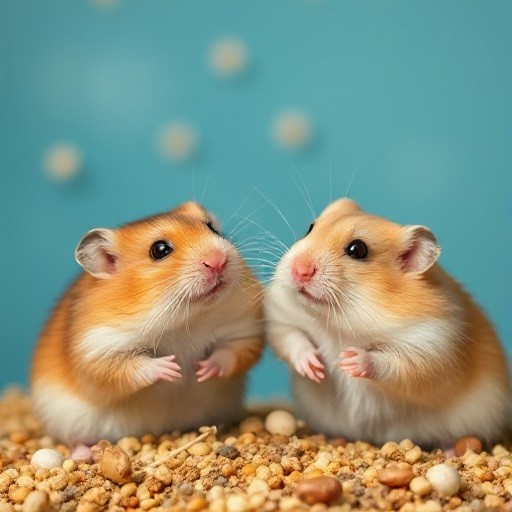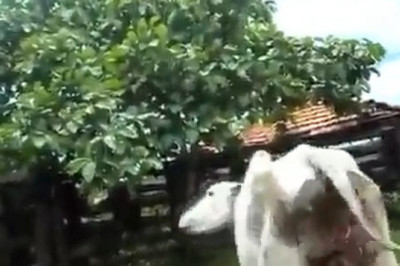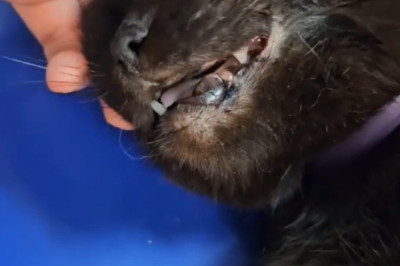
views
Can Hamsters Eat Apples? Everything You Need to Know

Embark on a delightful exploration into the world of hamster nutrition as we unravel the intriguing question: Can hamsters eat apples? These tiny furballs might seem like they can munch on anything, but it’s important to ensure their diet is safe and healthy. Discover the juicy details on whether this beloved fruit is a crunchy delight or a potential health concern for your furry companion. Satisfy your curiosity and ensure your hamster's well-being by diving into this complete guide.
Hamster Nutrition Basics
Before diving into whether apples are a suitable treat, it’s crucial to understand the basics of hamster nutrition. Hamsters are omnivores, meaning they eat both plant and animal-based foods. Their primary diet should consist of:
-
High-quality hamster pellets: These provide a balanced mix of nutrients necessary for their overall health.
-
Fresh vegetables: Leafy greens, carrots, and other veggies are excellent for variety and additional nutrients.
-
Small amounts of fruits: Fruits should be given sparingly due to their sugar content.
-
Protein sources: Occasional treats like boiled eggs, mealworms, and nuts can be beneficial.
A balanced diet ensures your hamster gets all the essential vitamins, minerals, and nutrients they need for a healthy and active life.
Can Hamsters Eat Apples?
The Short Answer
Yes, hamsters can eat apples, but with some important considerations and precautions. Apples can be a nutritious treat when offered in moderation and prepared correctly.
Nutritional Benefits of Apples
Apples are rich in vitamins and minerals that can benefit your hamster, including:
-
Vitamin C: Supports the immune system.
-
Fiber: Aids in digestion and helps prevent constipation.
-
Antioxidants: Help combat oxidative stress and support overall health.
These nutrients can contribute to your hamster's well-being when included as part of a balanced diet.
Precautions and Considerations
While apples offer health benefits, there are some important precautions to take:
-
Remove Seeds and Core: Apple seeds contain cyanide, which is toxic to hamsters. Always remove the seeds and core before offering apples to your pet.
-
Moderation is Key: Apples are high in sugar, which can lead to obesity and dental issues if consumed in excess. Offer small, bite-sized pieces as an occasional treat.
-
Wash Thoroughly: Wash apples thoroughly to remove pesticides and chemicals that can be harmful to your hamster.
-
Monitor for Reactions: Introduce apples gradually and monitor your hamster for any signs of digestive upset or allergic reactions.
How to Prepare Apples for Your Hamster
Proper preparation is essential to ensure apples are safe and enjoyable for your hamster. Follow these steps:
-
Choose Fresh Apples: Select fresh, ripe apples that are free from bruises and blemishes.
-
Wash Thoroughly: Rinse the apple under running water to remove any pesticides and dirt.
-
Remove Seeds and Core: Cut the apple into small, manageable pieces and remove the seeds and core.
-
Offer in Moderation: Start with a small piece and observe your hamster’s reaction. If they enjoy it and show no signs of digestive issues, you can offer a small piece once or twice a week.
Benefits of Feeding Apples to Hamsters
When given in moderation and prepared correctly, apples can offer several benefits to your hamster:
-
Variety in Diet: Introducing different fruits and vegetables can add variety to your hamster's diet and prevent boredom.
-
Nutritional Boost: Apples provide essential vitamins and minerals that support overall health.
-
Dental Health: The crunchy texture of apples can help keep your hamster's teeth healthy and trim.
Potential Risks and Drawbacks
While apples can be a healthy treat, there are potential risks and drawbacks to be aware of:
-
High Sugar Content: Excessive sugar intake can lead to obesity and diabetes in hamsters. Always offer apples in moderation.
-
Risk of Choking: Large pieces of apple can pose a choking hazard. Always cut the apple into small, bite-sized pieces.
-
Digestive Upset: Some hamsters may have sensitive stomachs and may experience digestive issues after eating apples. Monitor for any signs of discomfort or changes in stool.
Alternative Fruits and Treats for Hamsters
If you’re looking for alternative treats to add variety to your hamster's diet, consider these options:
-
Carrots: Low in sugar and high in fiber, carrots are a great alternative.
-
Broccoli: Packed with nutrients and low in sugar, broccoli can be a healthy treat.
-
Blueberries: Rich in antioxidants, but offer in moderation due to sugar content.
-
Cucumbers: Hydrating and low in calories, cucumbers are a refreshing treat.
Always introduce new foods gradually and observe your hamster for any adverse reactions.
Conclusion
In conclusion, apples can be a healthy and enjoyable treat for your hamster when offered in moderation and prepared correctly. They provide essential vitamins, minerals, and fiber that can benefit your pet's health. However, it’s important to remove the seeds and core, wash the fruit thoroughly, and monitor your hamster for any signs of digestive issues.
By understanding the nutritional needs of your hamster and offering a balanced diet with occasional treats, you can ensure your furry friend stays happy and healthy. Remember, variety is key, and always consult with a veterinarian if you have any concerns about your hamster's diet.
All images are AI generated.





















Comments
0 comment